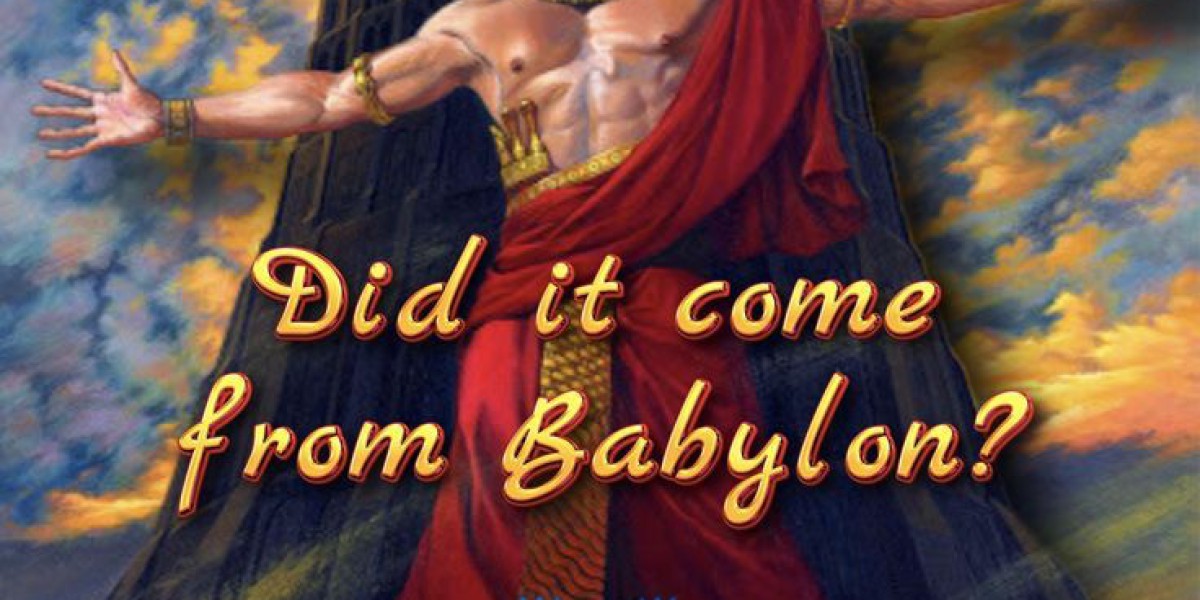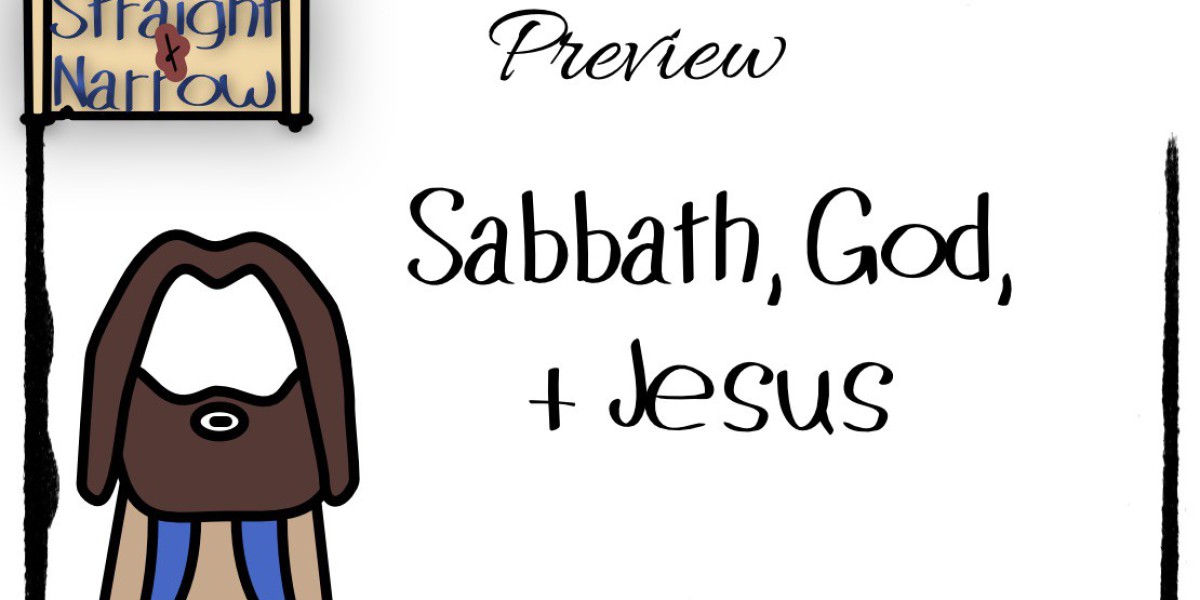Easter is evil.
…but not for the reasons you might feel.
Sure, Alexander Hislop taught that Easter is really, a Babylonian sex-goddess named Ishtar and many teachers in the Messy-anic movement have been fooled by buying into his terrible tome - “The Two Babylons” - tricked into believing that bunk…
But try to find any evidence for the good reverend’s claims outside of his own writings and those who have repeated them….
We have tried. All roads don’t lead to Rome in this instance, but to “The Two Babylons”.
Most theologians do not know philology… yet they mess around with the meanings of words anyway. Proper theological practice can not be accomplished without suitable proficiency in philology…thus, the present mess.
It’s not enough to know that Easter is evil. We must know WHY aswell. The WHY is as important as the WHAT, because the wrong WHY will be found out eventually and will inevitably destroy the WHAT.
Any truth seeker can be shown the pseudo-historical “facts” about Easter being Ishtar snuck into Christian practice by Rome, ancient Babylonian sungod worship foisted upon the faithful unawares….
Those craving correctness can be easily scared away from Easter observance believing it an ancient fertility goddess’ holiday but after the terrible shock subsides, and the believer goes off to do his or her own studies, the Babylonian angle is all annihilated entirely...and easily.
Then what are they left with?… “This is pagan because of Rome and Babylon.” But in reality Rome wasn’t involved and Babylon neither. Which leaves what? It leaves the believe without reason to believe that Easter is pagan. He or she feels they have made a mistake and returns back again to practicing it as before. But now they are worse off than before.
Truth is in both the WHAT and the WHY.
So WHAT is the truth?
Easter is evil. Easter is pagan.
But WHY? Because of Rome? Babylon?…
No…Because of Britain.
This may well blow your mind but Easter is entirely an English Protestant invention.
Yes. You read that right.
When the stories are told in ecclesiology - “church history” - they are always about “Easter” in the first century. The few casual mentions about Quartodecimism are referred to most prominently as the “Easter Controversy”. When the issue is addressed mostly in relation to the Council of Nicaea, it is said that the council was choosing between Easter and Passover. And when we read in our dratted King James Version of the Bible, we find Easter comfortably stuck into verse 4 of Acts chapter 12, oddly seeming to imply it as a thing the Jews were celebrating rather than a new thing of the Messiah’s disciples, as churchianity claims.
But when the tales are told of long ago it is an unfortunate trait of the story-tellers to add in anachronisms. That is details out of their natural place and time period. Nothing so overt as Yeshua riding into Jerusalem on a motorcycle or Kepha pulling out a Bowie knife to defend His Teacher when the mob came to take Him away. But rather this happens in subtle ways, like giving the people names from much later in the timeline and from other countries unrelated to the source material. And it takes place in details present that were not to be invented for generations.… and from far, far away. Things like “church” and “Christian”, referring to the pagan-born as “gentile” or the students of the Messiah as “disciples”.
Easter is one such anachronism.
And it first appeared in the Bible in the translation of William Tyndale in 1526.
It was not inserted by Rome, and it was not pulled from Babylon.
As is most often the case, Acts 12:4, in William Tyndale’s version is the result of nativization. That is to say, a translation that does not so much relay the meaning of foreign words to the local population, but instead adopts local words that the native population can relate to and refers to them anachronistically in their telling of the tale as if they were the custom of the foreign people aswell.
In the first English version of the Bible, published by John Wycliffe, but most likely translated by the Lollards, in Acts 12:4 they rendered the Greek paschal as “pasch”.
Paschal refers to Pesach or Passover from the original Hebrew. Both paschal and pasch make for acceptable transliterations into Greek and English.
When John Wycliffe, made his version, he was not doing a true translation. The Lollards were using the Septuagint translation of the “Old Testament” and the Latin Vulgate translation of the “New Testament.” Thus the version that bears the name of John Wycliffe, is a translation of a translation, and therefore not a true translation.
Contrariwise, William Tyndale, translated from the Hebrew “Old Testament” and the Greek “New Testament”. His was a translation as opposed to a version or a translation of a translation, though terrible all the same.
And he wrote Easter into his Bible.
Therefore between 1382 and 1526, we went from “Pasch” in English to “Easter” instead.
Over this period of 144 years in the Middle Ages, Easter was added to our English Bibles, not before.
No matter what we might read in our studies of the council of Nicaea or the first few centuries after the crucifixion, Easter was never an issue until this period of time in the dark ages, less than a century and a half long.
Did it literally become a thing the moment Tyndale wrote it in his version? Or was it already equated with the Christian celebration of Pasch (Paschal) and therefore Tyndale did not have a problem putting it in his version?
It is the second of these that is so.…
Tyndale did not put Easter into his version of the Bible, creating the connection between Easter and Pasch. He did so because by that time, English society had already established the false connection between these two unrelated terms.
And why did they? Because they were worshiping some pagan sex goddess from ancient Babylon?… No.
This happened as these things always happen… The ignorant masses do what the ignorant masses do, and in their ignorance, they make associations that are not right and should not exist, yet they do anyway because tradition takes on a life of its own; and it dies hard… And when the mob moves in any direction, one must either move with the tide of the people or be trampled to death in the crowd.
Up until this 144 year time period between A.D. 1382 and A.D. 1526, there was never an argument between Easter and Passover. There was no “versus”. There was no contest between these two. No matter how the story is told now, Easter did not precede this portion of time.
Instead, the argument had always been over the Passover and nothing but the Passover. The argument was not whether we should celebrate Passover or Easter, but rather, WHEN we should celebrate the Passover, and HOW.
The Council of Nicaea decided that celebrating the Passover on the 14th day of the first month of the year, as is written in the Bible and commanded for all righteous people to do, that this was Jewish, and that to continue in this practice is Judaizing and therefore a heresy.
The Council moved the celebration of Paschal to the following Sunday after the “Jewish Passover”. Eventually, this timing was altered to be the first Sunday, following the full moon that falls on or after the vernal equinox. But even then it was always an argument over the timing of Passover not whether we should be celebrating Passover or Easter.
William Tyndale moved to Germany in 1524 and though he was not a student of Martin Luther, he learned much of his theology from that disgruntled monk. And as far as the origins of Easter ending up in his translation, we have his affinity for Luther to thank.
Martin Luther had already made his version of the Bible in German in 1522 and when he rendered Acts 12:4 he wrote “Ostern” instead of Paschal or Passover. Inspired by Luther’s choice on this and many other details, Tyndale penned the English version of Ostern into his Bible as Easter.
But what is Easter and Ostern? A sex goddess? Fertility goddess? Roman? Babylonian? No. None of the above.
In that time, Ostern and Easter were simply the names in German and English respectively of the month we currently call April on our modern calendars.
If this had happened in modern English instead of Middle English the new version of Acts 12:4 would read something like…
“…intending after April to bring him forth to the people.”
It was quite simply the name of the month in which Paschal took place as reconned by the Germanic / Anglo-Saxon terminology. Luther and Tyndale were nativizing their translations instead of foreignizing them as they aught to.
The occurrence of Paschal or Pasch within the month called Ostern or Easter in Germanic and English cultures resulted in the mistaken association and eventual false equivalency.
So the month named Ostern has its name transferred onto the celebration of the Passover which falls (according to church tradition) within that month. Likewise with the related culture of England, the name of the month Eoster (Easter) over a short period of time gave its name to the traditional “Christian Passover.”
But this is only so of Germanic and English speaking countries and lands whose heritage is that of once belonging to the British empire.
Tyndale was strangled to death at the order of the Church and his body burned. But his unfinished work was completed by Miles Coverdale, who published the Bible that bears his name. And later Coverdale was also tasked to rework, revise, or update his own Bible version to become the Great Bible. And the Great Bible was later updated as the Bishop’s Bible, which was eventually updated into the King James Bible… All of which said Easter instead of Passover perpetuating the perversion. And the authorized version, the KJV, was the principal biblical text around the world in all the British empire.
That is why most of the English speaking world to this day celebrates Easter rather than Passover.
So is there any goddess behind this all?
Not directly…but maybe. And not from Babylon or from Rome.
If we go back far enough we find that the month of Easter or Ostern is itself likely named for a spring goddess of the same name…at least according to the Venerable Bede. But again we end up with the problem of a solitary source. Albeit one anciently placed and primary to the issues of discussion as opposed to the biased reverend of a couple centuries ago desperate to blame the ills of the ages on the Holy Roman Empire and to tie her back to Babylon, but still we must be cautious in our considerations.
Either way, Easter is not named for a goddess, but for a month… Which itself might be or might not be named after a goddess. Is a woman named Athena or Diana named after the pagan goddess of Greece and Rome, if she was given her name based off of her grandmother of the same name? Not so much. But all in all it’s best to avoid such things if possible.
We have to be completely honest about these issues.
The pagan origins of Easter don’t date back to Babylon but the month of April in the Germanic and Anglo-Saxon calendar system. They didn’t get stuffed into English Bible versions by Rome but by the Protestant Reformers. And there is no etymological connection between Easter and Ishtar.
Easter is evil simply because it is a foreign adaptation, because it is the adoption from a culture alien to the Scripture, and because it is setting said replacement in-place of the original Divine instruction.
But make no mistake, the celebration did not become pagan when it acquired the name of Easter in the middle ages. It became pagan when the church chose to move it away from the day the Bible commands it’s observance.
It became pagan when the church decided that what the Bible commanded all Israel to do was just some Jewish thing and that they needed to do something different.
It became pagan when Christian tradition made it foreign.
So if there is any fix for this wickedness, it is not simply the removal of the title of Easter, though that is necessary and possibly a first step. But more as needed. The superfluous and silly traditions of bunnies and painted eggs, certainly need to be purged from the celebration as well, but even this will not set it rightly according to the Bible.
Passover was never Jewish. And celebrating the Passover on the 14th day from the new moon of the first of the year, was not a Jewish thing to do. It was a Biblical thing to do and remains so. Returning to that is not a heresy, but a healing of historical wrongs.
The Most High says the Passover is His. Not the Jews’. Not the Christians’. “It is the Pesach of YHWH” - the Bible says. If we are His, then we do His things His way, not ours, whether we are Jew or Christian or otherwise. And we don’t call His things our things. Nor His things Jewish things. Nor our own things.
To make this no longer pagan, we need to remove all the things we have added in over the ages, whether they be rabbits and eggs or other names and different dates.
But whatever we do, we must begin by being completely honest with ourselves and our audience to ensure that we do not continue peddling false premises, which only serve for a time and fail terribly.
Second Guess First Assumptions
Question Everything
Get Biblical






